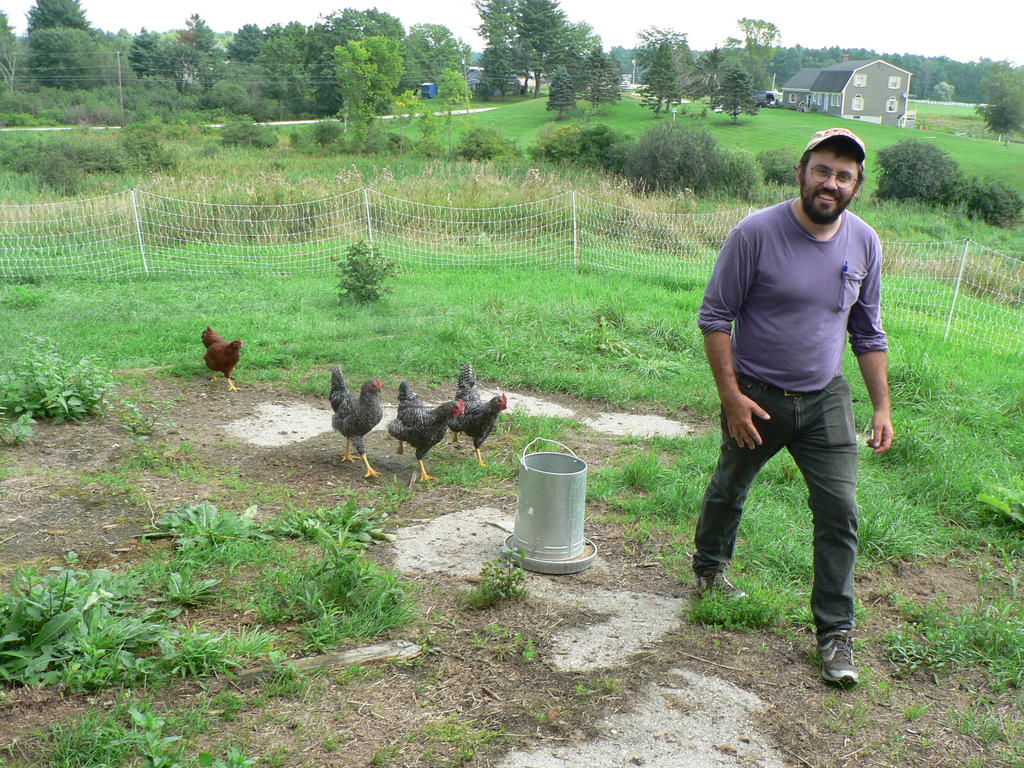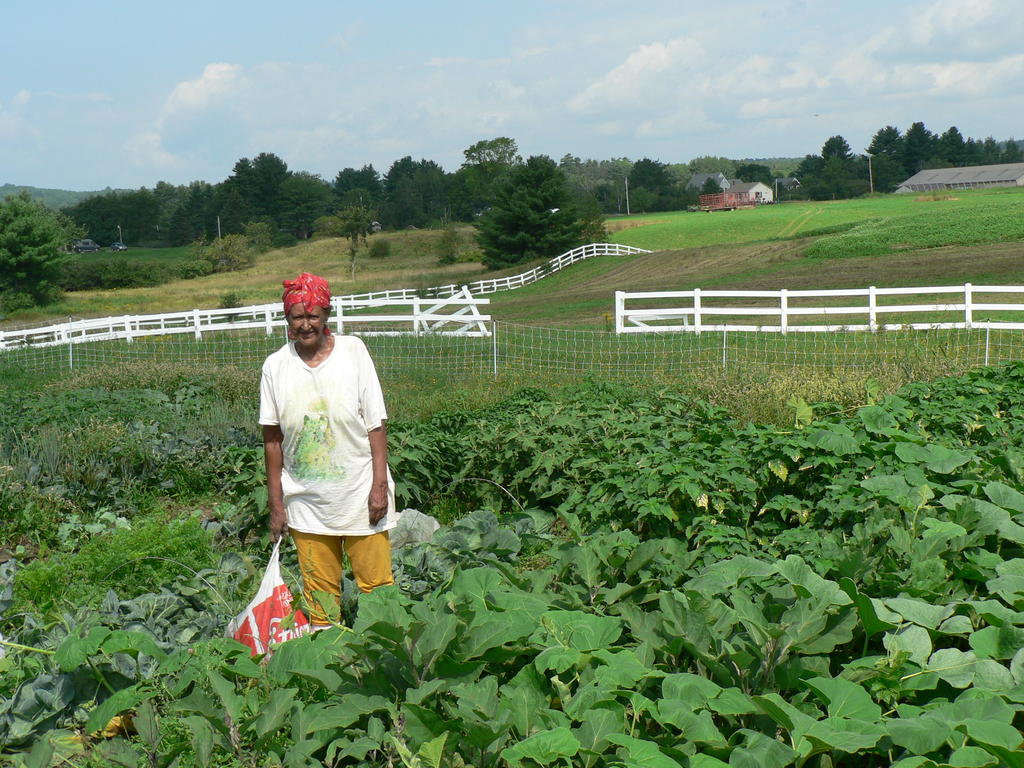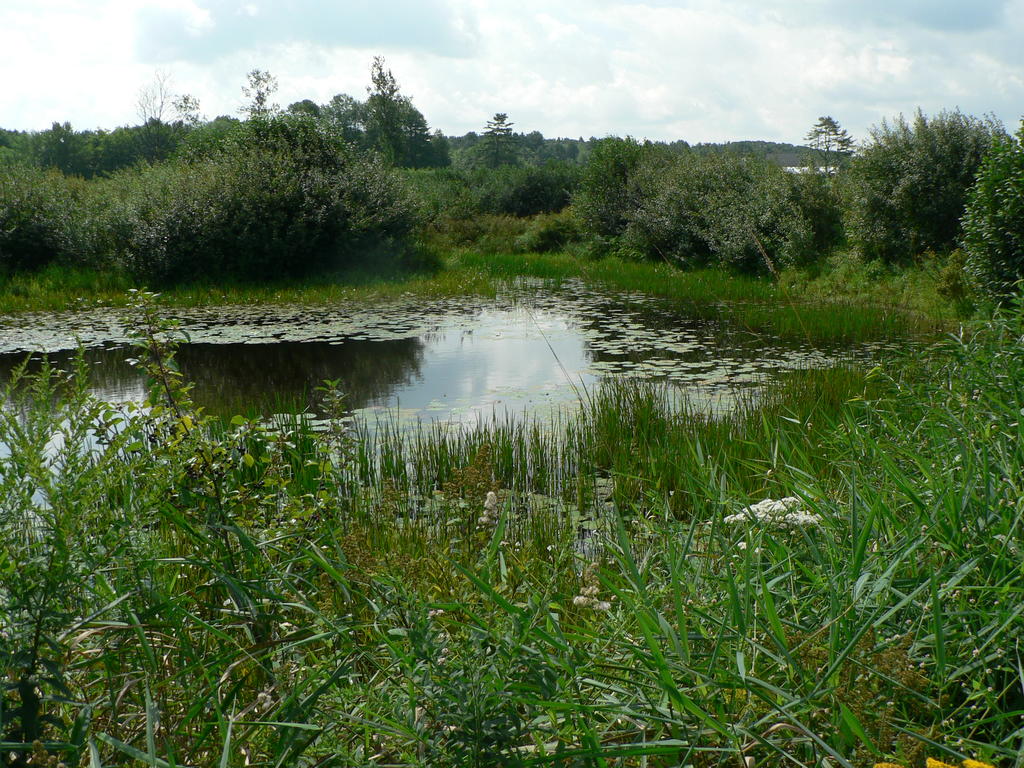FALMOUTH — Amaranth, roselle and African eggplant are not commonly known crops in Maine, but they’re all being grown locally this summer under a new partnership between the Falmouth Land Trust and Cultivating Community.
Cultivating Community now has a rolling 10-year lease on the Hurricane Valley Farm off Gray Road and plans to turn it into a center for agriculture and environmental stewardship with the help and support of the land trust.
“Move over kale,” farmer Asha Abdulleh said last week, referring to how popular amaranth is in Africa and other parts of the world.
She said the grain, which is a relative of quinoa, is “very nutritious” and “quite delicious” when sauteed with onions, garlic and tomatoes. What Abdulleh, who is originally from Kenya, also appreciates about amaranth is that the leaves of the plant are edible and make a good cooking green.
In fact, what makes many of the crops being grown at the Hurricane Valley Farm this summer special is that the entire plant can be used in one way or another, according to Alex Redfield, the director of farmer training at Cultivating Community.
For example, the roselle plant, which is a member of the hibiscus family, produces berries that can be used to make juice, but the flowers are also edible and can also be dried to add a lemony flavor to dishes or drinks. In addition, the leaves of the plant can be eaten raw or cooked.
Founded in 2001, Cultivating Community has a mission of creating better access to healthy, local foods while teaching and advocating for ecological food production, according to the organization’s website.
It fulfills its mission through incubator farm and community garden programs, among other efforts, such as the Good Food Bus. In addition to the Hurricane Valley Farm, Cultivating Community also has a farm site in Lisbon. In all, the organization helps support 26 farmers from Augusta to Kennebunk.
This summer it only has a small portion of the arable land in West Falmouth under cultivation, “but we have a lot of things planned” for the future, Redfield said, including an orchard, livestock production and beekeeping.
He said only about 10 to 12 acres of the 62-acre farm are suitable for vegetable production. The remaining land will be used as appropriate to the topography and other factors, Redfield said.
Along with food production, Hurricane Valley Farm will also include walking trails and woodlot management, as about 5 acres of the property is wooded, which Redfield described as “a nice mixed forest.”
A conceptual master plan, which included public input, has been created for the property and is still being finalized, as Cultivating Community has spent the summer learning about the land and some of its quirks and key features.
The land trust purchased the Hurricane Valley Farm in 2015 with help from town funds and it was part of the memorandum of understanding that the property would remain as open space while maintaining its agricultural character.
When the land trust first announced its partnership with Cultivating Community in February 2017, then-president Tommy Johnson said the goals of the trust for the farm “aligns perfectly” with what Cultivating Community is all about.
This week Jenny Grimm, executive director of the land trust, said, “We’re really excited about this project. We’re very optimistic that we can create something of real value” at the farm. “Cultivating Community is a wonderful partner and has already shown an incredible amount of effort, integrity and good work.”
While Grimm “would like to snap my fingers and have everything at the farm fully built out tomorrow, we are actually working in a very deliberative way to bring the pieces into place” at the appropriate time.
“This is such an amazing project. It’s a big, new venture for us, but so far it’s been delightful,” she added.
To help support its work at the farm and elsewhere in town, the land trust will hold its annual Harvest Moon Farm Fest at 5 p.m. on Sept. 27. Tickets are 40 per person and the event includes wine, beer and local food.
As it does with other farming projects, Cultivating Community is using farmers “from all different countries and backgrounds” to bring the Hurricane Valley Farm back to life, Redfield said.
Through its New American Sustainable Agriculture Program, Cultivating Community supports immigrants and refugees with farming, marketing and product development training. The goal is to help these newcomers not only feed their own families, but bring in income by selling the produce they grow.
This summer five farmers, mostly from Africa, have been working the land at Hurricane Valley Farm. They’re growing everything from the more recognizable watermelon, broccoli and sweet corn to food that is better known in other parts of the world.
“Our role is to create conditions for successful (organic) farming,” Redfield said, which means adapting to how climate change affects the growing season to ensure Hurricane Valley Farm retains its biodiversity.
Kate Irish Collins can be reached at 710-2336 or kcollins@theforecaster.net. Follow Kate on Twitter: @KIrishCollins.

The Hurricane Valley Farm in West Falmouth is now under the management of Cultivating Community. Farmers are growing on about 3 acres of land this summer, but there are plans for significant expansion in the next few years.

Alex Redfield, the director of farmer training at Cultivating Community, lives at Hurricane Valley Farm in West Falmouth, where he cares for the farm’s fledgling flock of chickens, among other duties.

Asha Abdulleh, who is originally from Kenya, is growing a variety of crops at the Hurricane Valley Farm in West Falmouth this summer, including amaranth.

An irrigation pond on the 62-acre Hurricane Valley Farm. Such a water source is key as southern Maine has experienced severe drought conditions for three years running.
Comments are no longer available on this story